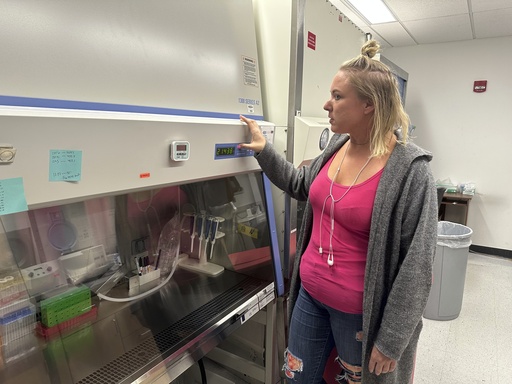On Thursday, President Joe Biden made history by commuting or granting pardons to approximately 1,540 individuals, marking the most extensive single-day act of clemency in modern times. Among the beneficiaries was a diverse group including a leader of a nonprofit aimed at aiding at-risk youth in New Orleans, a social worker engaged in animal fostering, and a postdoctoral researcher.
While the clemency actions were a significant milestone, not all reactions were positive. For instance, a Republican state senator expressed outrage over the commutation of a woman involved in a $54 million embezzlement case, calling it a “slap in the face” to the local community. Additionally, the Democratic governor of Pennsylvania criticized Biden for commuting the sentence of a judge implicated in a scandal that sent children to for-profit institutions in exchange for kickbacks, arguing that it was a grave error.
Among those affected by this sweeping act of clemency is Trynitha Fulton, a 46-year-old educator from New Orleans. Fulton had been convicted of payroll fraud while working as a middle school teacher in the early 2000s. Though she served her sentence of probation and attained her master’s degree, she struggled with feelings of shame and abandonment due to her felony record, which barred her from aspiring to principal roles. Upon receiving the news of her pardon, Fulton expressed surprise and joy, mentioning that it would open her up to more professional opportunities. The White House recognized her commitment to the community, citing her efforts to assist vulnerable youth through a nonprofit organization that provides essential resources.
Another individual who received a pardon was Stevoni Doyle, a 47-year-old from Utah. Doyle, who struggled with meth addiction during her youth, was convicted of drug possession and forgery, leading to a prison sentence. After dedicating herself to recovery and achieving academic success with both a bachelor’s and master’s degree, she became a social worker. The lengthy process leading to her pardon began in 2018, leaving her detailing the extensive vetting that accompanied her application. Doyle highlighted that her experience demonstrates hope for others grappling with addiction.
Rita Crundwell, from Dixon, Illinois, was another prominent name on the list. Crundwell was sentenced to over 19 years in prison after embezzling around $54 million during her tenure as the city’s finance director. Although she was released to a halfway house before extending her stay to home confinement, receiving a commutation now frees her from all restrictions. Local officials expressed disbelief and anger over her clemency, with the mayor noting it’s a painful blow to the town that once suffered from her actions.
In Pennsylvania, Michael Conahan, a former judge sentenced for his role in the infamous “kids-for-cash” scandal, also had his sentence commuted. He had orchestrated a scheme that led to the unjust incarceration of many youths for profit. His release drew immediate criticism, especially from families affected by the scandal and political leaders, expressing that Biden’s decision ignored the pain caused by Conahan’s misconduct.
Lastly, Kelsie Lynn Becklin, a 38-year-old from Minnesota, was granted a pardon. Becklin found herself navigating a life marred by felony records stemming from her efforts to finance her drug addiction as a young adult. After a pivotal realization that her life choices directly impacted her child, she pursued education earnestly and eventually earned her doctorate in comparative molecular biosciences. Becklin is committed to mentoring others who were formerly incarcerated, assisting them in transitioning to higher education.
Through these stories, the recent clemency decisions not only highlight individual journeys of redemption and reintegration into society but also spur conversations about justice and the impact of previous convictions on people’s lives. The differing opinions surrounding these clemency actions underline the complexities and emotions tied to the matter.


